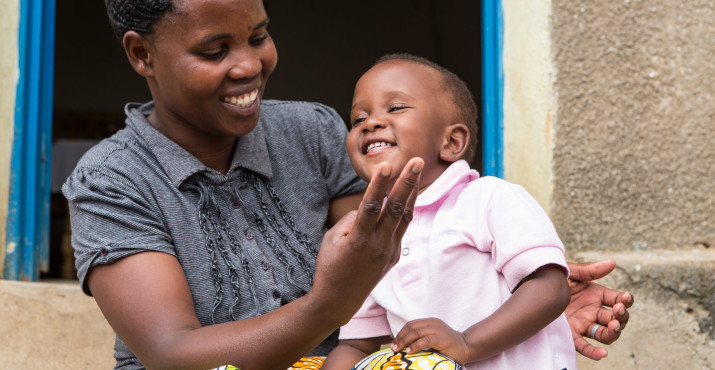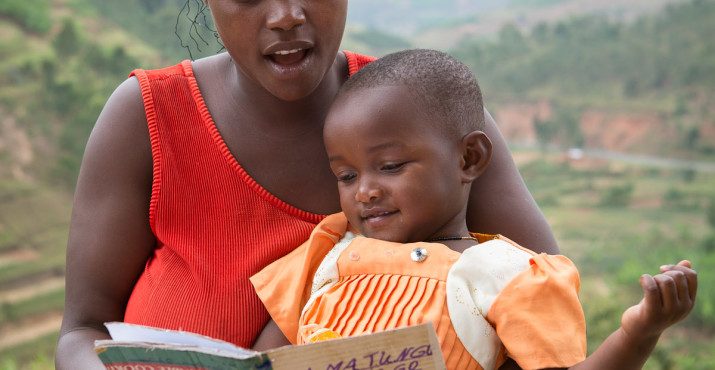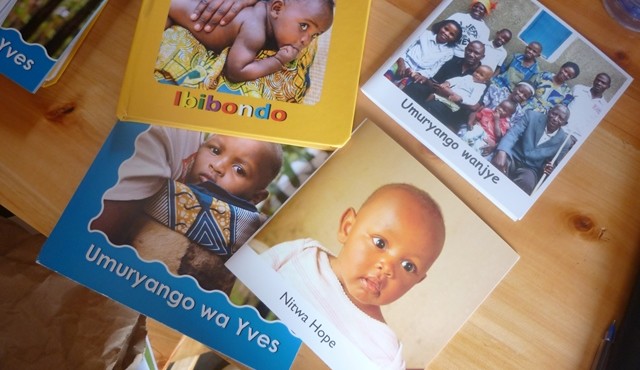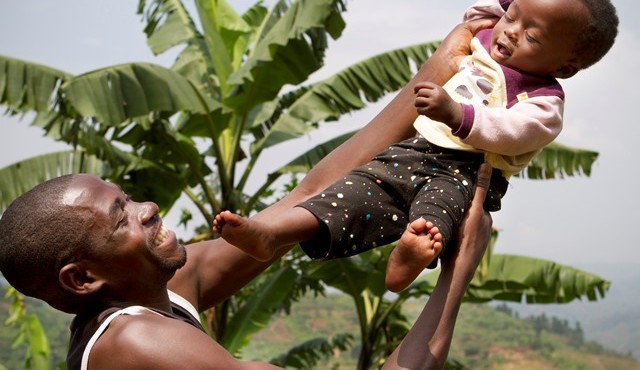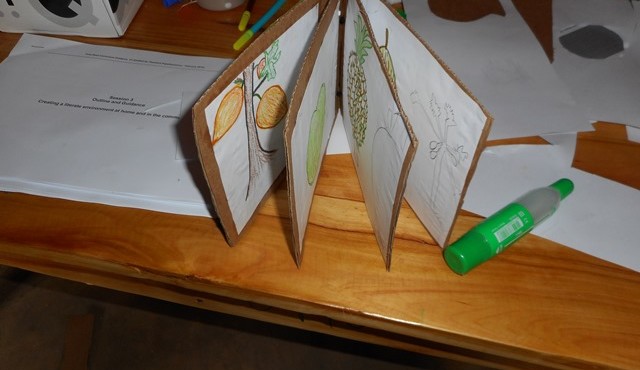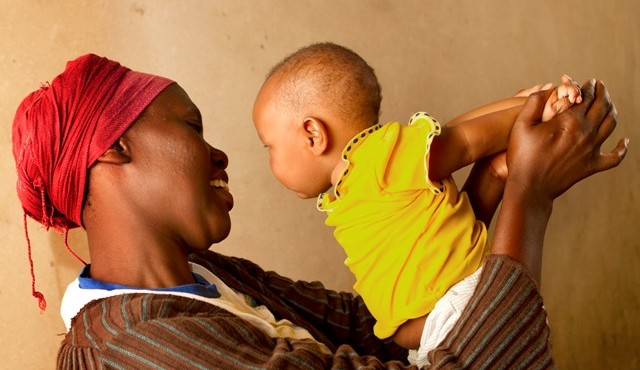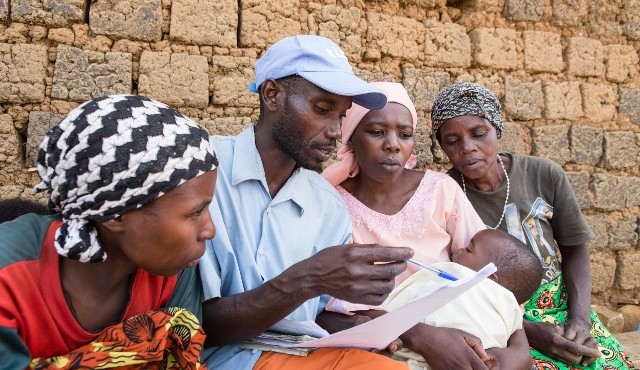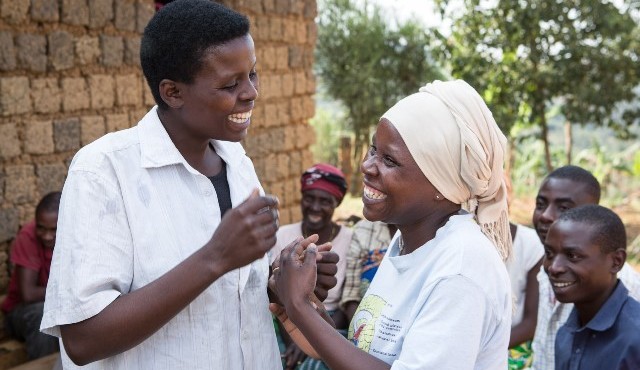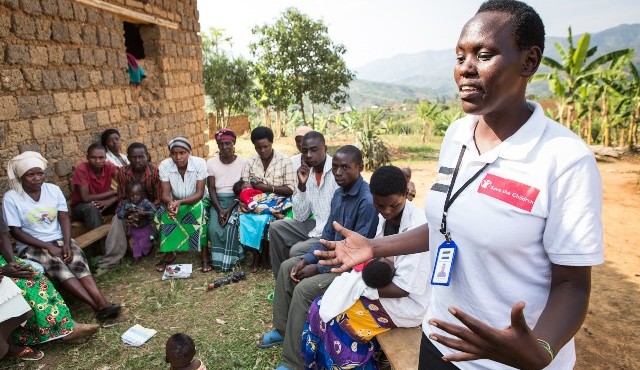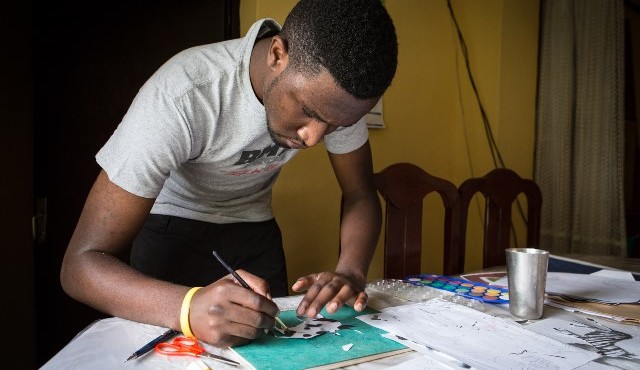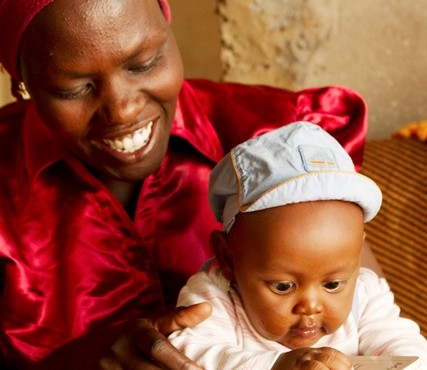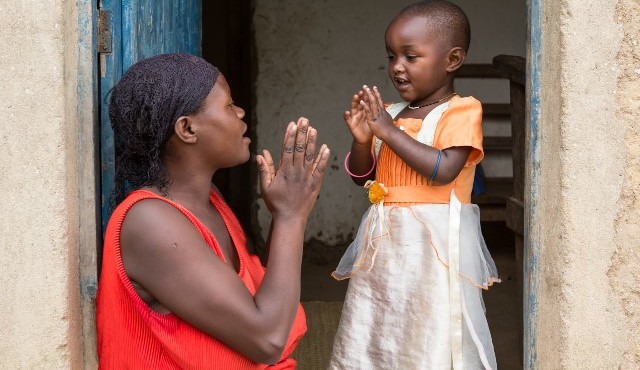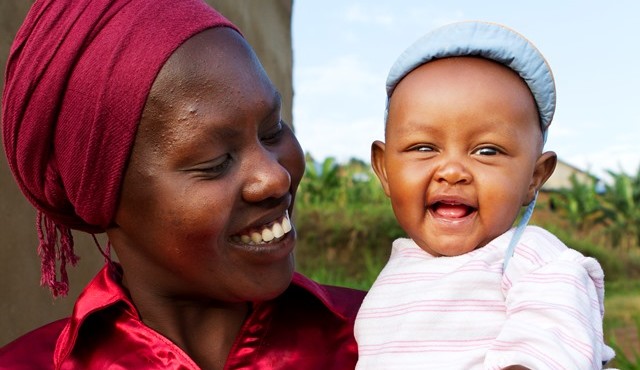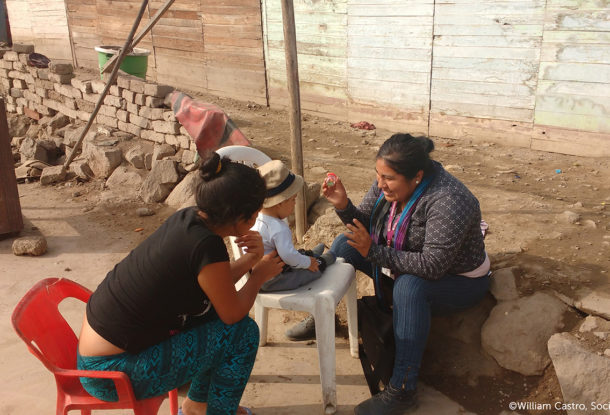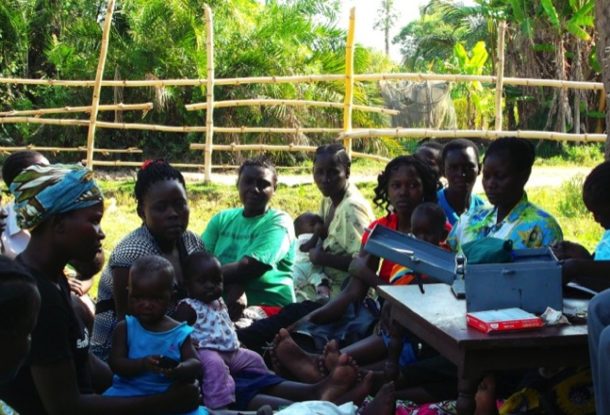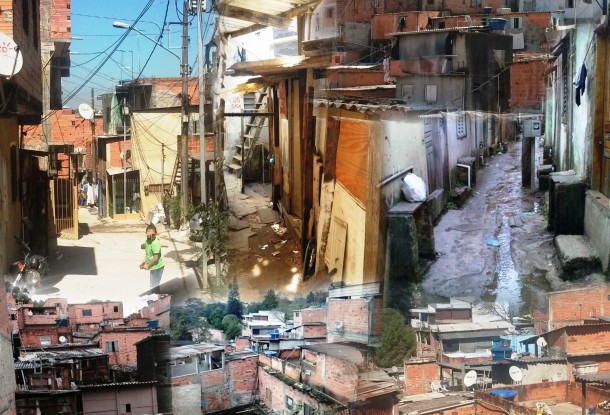Innovation Summary
Parents’ interactions with infants and children in the first years can have a long-term impact on physical health, on social and emotional well-being, and on cognitive capacities [1]. With training, parents can become more effective providers of the care and stimulation that babies and young children need to develop properly [2]. Although there are many parenting education programs on particular issues or for specific target populations, few countries have implemented nation-wide holistic parenting education approaches [3]. Furthermore, most large-scale parenting education programs rely solely on mass media communications, which are limited in effectiveness unless accompanied by opportunities for interpersonal communication [4]. Finally, few programs target issues of cognitive development in the first 1000 days, and those that do rarely address supply-side challenges, like whether parents can actually access books that are suitable for reading aloud with their children [3].
First Steps innovates beyond these limitations, offering a nationally-scalable and holistic approach to parenting education that is integrated with Rwandan government structures, combines radio programming with community-based peer learning groups, and collaborates with local publishers and entrepreneurs to increase parents’ access to emergent literacy materials.
Gallery
Impact
Expected Impact:
- Reach 2,430 parents from 1620 families
- Improved child development scores among 931 beneficiary children
- 2 innovative prototypes for nationwide parenting education and 1 prototype for increasing demand and access to children’s books at local level developed.
Holistic parenting education for parents of children aged 0-3 has been cited as a new form of ECCD services in the 2014 Draft Revised ECD Policy for Rwanda. The First Steps Project is strategically positioned to provide government with scalable prototypes and cost effective delivery models to actualize the vision of increased ECD services nationwide.
-Caroline Dusabe, First Steps Project Manager
Innovation
First Steps (Intera za Mbere) is a nationally-scalable approach to promoting healthy early childhood development by offering holistic parenting education to expectant parents and parents of 0-3 year olds in Rwanda. First Steps focuses on parents’ support for physical, socio-emotional, cognitive, and language development—with additional emphasis on the Rwandan priorities of avoiding family violence and cultivating foundational skills for emergent literacy in the home. First Steps is offered through a series of weekly neighborhood-level meetings guided by radio programming and local facilitators, envisioning national expansion through the Rwandan government’s initiative Umugoroba w’Ababyeyi (Parents’ Evening). The increased demand for emergent literacy materials created by First Steps is matched by a collaboration with local publishers,
focused on publication of greater numbers of quality Kinyarwanda-language babies’ and children’s pre-literacy materials and books, and on encouraging the emergence of a new kind of entrepreneur operating book stalls on local market.
There are four program components that will be tested through this First Steps project: (1) radio programming to facilitate parent group sessions; (2) a package of materials including a facilitators’ guide, illustrated activity cards on parenting practices, two children’s books per family, and a demonstration of home book-making using local supplies; (3) a trained area facilitator who can provide support to local volunteers in leading parenting sessions and conducting home visits; and (4) interventions to increase the availability of books and supplementary learning materials.
Collaboration
Funders:
- Saving Brains Partners
- Save the Children UK
Key Partners:
- Umuhuza Organization, Rwanda
Implementation
Expected drivers:
- Involvement and buy-in of the Rwanda Ministry of Gender and Family Promotion (MIGEPROF)
- Support of local authorities in Ngororero district
Expected challenges:
- Ability to get parents from different villages to commit to gathering on one specific day and time per week for 16 weeks running
- Interruptions to parenting session meetings due to unavoidable circumstances such as poor weather, etc.
Continuation
If proven effective to influence or change parental behavior and practices, this modality will be adopted and used for parenting sessions for parents of children aged 4-6 and 7-9 years old under different projects. Likewise, learning from the engagement of local book seller entrepreneurs will inform a similar approach to be taken up on other project areas where demand for reading materials is being built through other types of community engagement activities.
Evaluation Methods
The project will be evaluated in a Randomized Controlled Trial (RCT) in which beneficiary families will be assigned to either of 3 different treatment conditions. 540 families will be assigned to each treatment condition as follows:
Group 1: Parents attend parenting education sessions facilitated by radio, supported by a local volunteer that has received 2 x half-day trainings and a basic package of training materials;
Group 2: Parents attend parenting education sessions facilitated by radio, supported by a local volunteer that has received a full package of materials and an additional training for the volunteer on how to use them, book gifting to participating families, plus a salaried area facilitator supporting the local volunteers in guiding group sessions and conducting home visits.
Group 3: Control
The following evaluation tools will be used:
- A Caregiver/ Parents Questionnaire will be used for measuring change in parental attitudes, knowledge, skills and practices at baseline, midline and end line.
- A Child Emergent Literacy List (CELL) questionnaire and the Ages and Stages Questionnaire (ASQ) will be used to measure child development scores at baseline and end line.
Impact of Innovation
The innovation is expected to initially impact 2,430 parents and 931 children aged 0-3 years. Parents are expected to have improved parenting practices, skills, knowledge and attitudes and children are expected to have improved child development scores as a result of change in behavior, practices and attitudes of parents. 90 facilitators will be trained during the course of this project.
A nationally scalable approach to holistic parenting education will also be available for uptake by the Government of Rwanda, with the potential to impact many more people.
Cost:
The cost of the innovation is expected to cost CAD 421,933 (inclusive of Monitoring and Evaluation costs). Cost-effectiveness will be estimated through a Value for Money analysis to be carried out following the endline evaluation.
References
- CDC (2007). The Science of Early Childhood Development: Closing the Gap between What We Know and What We Do. Harvard University: Center on the Developing Child.MIGEPROF (2013). Revised Family Policy. Ministry of Gender and Promotion of the Family: Kigali, Rwanda [draft still under development].
- Evans, J. (2006). Parenting Programmes: An Important ECD Intervention Strategy. UNESCO.
- Baker-Henningham, H. & Lopez Boo, F. (2010). Early Childhood Stimulation Interventions in Developing Countries: A Comprehensive Literature Review. Banco Interamericano de Desarrollo (BID).
- Saunders, B. & Goddard, C. (2002). The Role of Mass Media in Facilitating Community Education and Child Abuse Prevention Strategies. National Child Protection Clearinghouse: Melbourne, Australia.
Resources
-
Research
-
ASQ (2014). Ages & Stages QuestionnairesTM, Third Edition (ASQ-3). Brookes Publishing Company
-
DeStefano, J.; Ralaingita, W.; Costello, M.; Sax, A.; and Frank, A. (2012). Early Grade Reading and Mathematics in Rwanda: Final Report. RTI International for the United States Agency for International Development.
-
DHS (2010). Rwanda Demographic and Health Survey 2010. National Institute of Statistics: Kigali, Rwanda.
-
GoR (2013). Rwanda Launches a 1000 Days Campaign to Eradicate Malnutrition. Government of Rwanda: Kigali, Rwanda.
-
Kaminski, J.W. et al (2008). A Meta-Analytic Review of Components Associated with Parent Training Program Effectiveness. Journal of Abnormal Child Psychology, Vol. 36, pp. 567-589.
-
Landers, C. & Myers, R. (1988). Home-Based Programmes: Educating Parents and Other Caregivers. Coordinators’ Notebook, No. 5. The Consultative Group on Early Childhood Care and Development.
-
MIGEPROF (2013). Revised Family Policy. Ministry of Gender and Promotion of the Family: Kigali, Rwanda [draft still under development].
-
MINAGRI (2012). Comprehensive Food Security and Vulnerability Analysis and Nutrition Survey: Rwanda 2012. Ministry of Agriculture and World Food Program: Kigali, Rwanda.
-
MINEDUC (2011). Early Childhood Development Policy. Ministry of Education: Kigali, Rwanda.
-
MINEDUC (2011). Early Childhood Development Strategic Plan: 2011/12-2015/16. Ministry of Education: Kigali, Rwanda.
-
NIS (2012). EICV3 District Profile: West-Ngororero. National Institute of Statistics: Republic of Rwanda.
-
Okech, A. & Torres, R. M. (2005). Rwanda: Study of Literacy Needs and Programmes for Youth and Adults. Background paper prepared for the Education for All Global Monitoring Report 2006, Literacy for Life. UNESCO.
-
Pisani, L.; Borisova, I.; and Brown, C. (2013). Early Literacy and Maths Initiative (ELMI) Rwanda: Baseline Report. Save the Children: Kigali, Rwanda.
-
SFCG (2010). Rwanda Media Mapping Baseline Report. Search for Common Ground: Kigali, Rwanda.
-
Simpson, A.R. (1997). The Role of the Mass Media in Parenting Education. The Center for Health Communication, Harvard School of Public Health.
-
UNDP (2014). Human Development Report 2014: Country Profiles: Rwanda. United Nations Development Programme,
-
UNICEF (2014). Knowledge, Attitudes and Practices Assessment on Early Nurturing of Children Report. Ministry of Health and UNICEF: Kigali, Rwanda.
-
World Bank (2014). Rwanda Data.
-
-
Instruments and Batteries
-
Caregiver/ Parents Questionnaire. Change in parental attitudes, knowledge, skills and practices. Save the Children.
-
Child Emergent Literacy List (CELL) questionnaire. Emergent literacy skills Save the Children.
-
Ages and Stages Questionnaire (ASQ). Child development scores. Brookes Publishing Co. Product.
-
